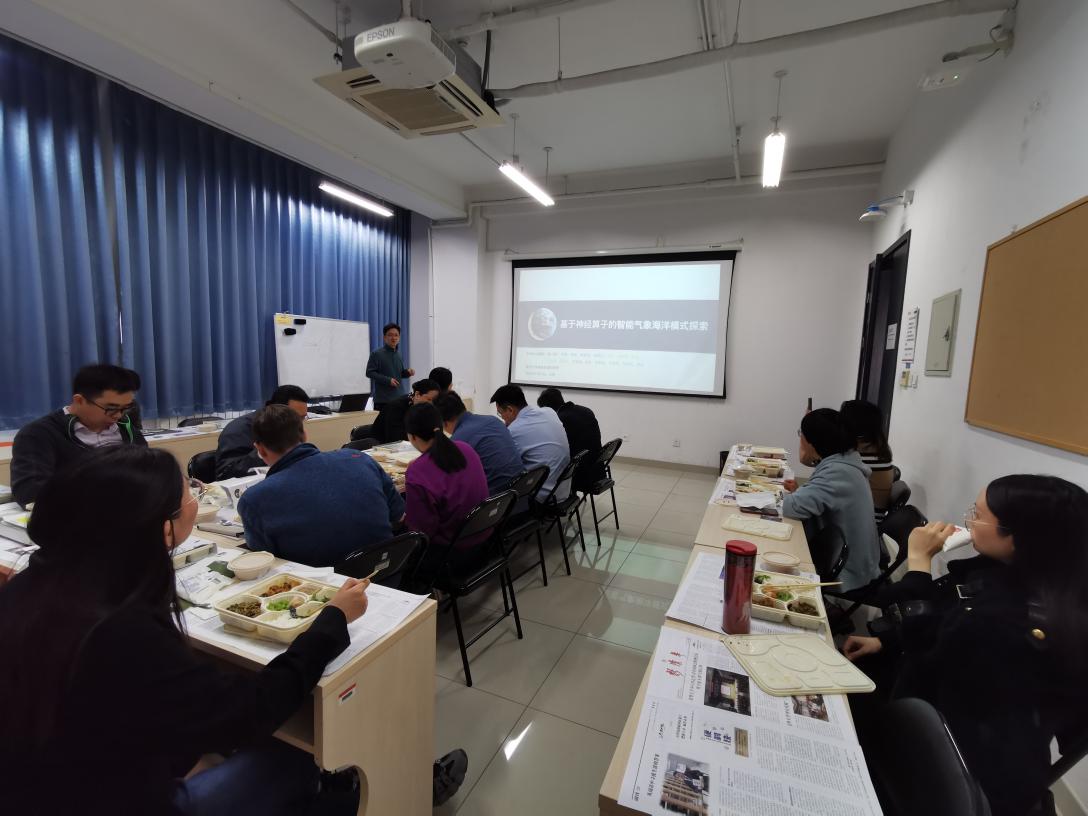At noon on March 21, the Department of Earth System Science (DESS) of Tsinghua University held the Second Academic Exchange Activity of the Luncheon Salon in the spring semester of 2024 in S927, Mong Man Wai Technology Building, Tsinghua University. In this Activity, Professor Huang Xiaomeng from the DESS, who was invited as the keynote speaker, delivered a report entitled "Exploration of Intelligent Meteorological Ocean Model Based on Neural Operators".
Prof. Huang Xiaomeng, starting from the development and evolution of the data-driven intelligent model in meteorological ocean forecasting, comprehensively reviewed the latest progress and future developmental trend of the intelligent model technology. His report covered the latest research results in many fields, including FourCastNet, Pangu Weather, GraphCast, VIT-KNO, Climax, Fengwu, Fuxi and AI-GOMS, among others, and presented us with a panoramic view of the development of the intelligent model. In the report, Prof. Huang mentioned the initial success of the data-driven intelligent model in meteorological ocean forecasting, discussed the physics-based machine learning method, introduced the advantages of the autoregressive model based on graph neural networks (GNNs) in meteorological ocean forecasting, and explained the theoretical basis of neural operator and its role in the development of the intelligent model. Meanwhile, Prof. Huang noted that neural operators provided theoretical support for the development of the intelligent model, and demonstrated, through specific cases, the application effect of neural operators in different equations.

As a member of the AI-GOMS research and development team, Prof. Huang Xiaomeng mainly introduced the core architecture of this model and its importance and potential in the field of ocean forecasting, detailing the key technologies in the model, such as MAE mask self-coding and Fourier transform, as well as their roles in improving the prediction accuracy and efficiency of the model. Through the application of these technologies, AI-GOMS can more accurately simulate the complex dynamic process of the ocean system, thus providing more reliable support for ocean forecasting. AI-GOMS, which represents the latest achievement of the intelligent model in ocean forecasting, is a revolutionary attempt at model forecasting in the ocean field.
After the sharing, the participating faculty members held a heated discussion on the application of neural operators in the field of meteorology and ocean.